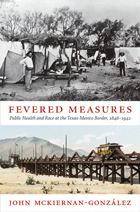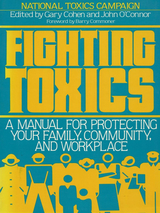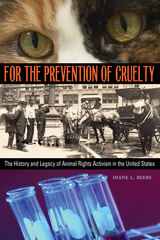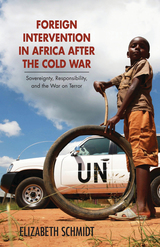12 start with F start with F

***Winner of an English PEN Award 2022***
The mainstream conversation surrounding gender equality is a repertoire of violence: harassment, rape, abuse, femicide. These words suggest a cruel reality. But they also hide another reality: that of gendered violence committed with the complicity of the State.
In this book, Françoise Vergès denounces the carceral turn in the fight against sexism. By focusing on 'violent men', we fail to question the sources of their violence. There is no doubt as to the underlying causes: racial capitalism, ultra-conservative populism, the crushing of the Global South by wars and imperialist looting, the exile of millions and the proliferation of prisons - these all put masculinity in the service of a policy of death.
Against the spirit of the times, Françoise Vergès refuses the punitive obsession of the State in favour of restorative justice.


Fighting Toxics is a step-by-step guide illustrating how to investigate the toxic hazards that may exist in your community, how to determine the risks they pose to your health, and how to launch an effective campaign to eliminate them.

Advocates a cybersecurity “social contract” between government and business in seven key economic sectors
Cybersecurity vulnerabilities in the United States are extensive, affecting everything from national security and democratic elections to critical infrastructure and economy. In the past decade, the number of cyberattacks against American targets has increased exponentially, and their impact has been more costly than ever before. A successful cyber-defense can only be mounted with the cooperation of both the government and the private sector, and only when individual corporate leaders integrate cybersecurity strategy throughout their organizations.
A collaborative effort of the Board of Directors of the Internet Security Alliance, Fixing American Cybersecurity is divided into two parts. Part One analyzes why the US approach to cybersecurity has been inadequate and ineffective for decades and shows how it must be transformed to counter the heightened systemic risks that the nation faces today. Part Two explains in detail the cybersecurity strategies that should be pursued by each major sector of the American economy: health, defense, financial services, utilities and energy, retail, telecommunications, and information technology.
Fixing American Cybersecurity will benefit industry leaders, policymakers, and business students. This book is essential reading to prepare for the future of American cybersecurity.

Animal rights. Those two words conjure diverse but powerful images and reactions. Some nod in agreement, while others roll their eyes in contempt. Most people fall somewhat uncomfortably in the middle, between endorsement and rejection, as they struggle with the profound moral, philosophical, and legal questions provoked by the debate. Today, thousands of organizations lobby, agitate, and educate the public on issues concerning the rights and treatment of nonhumans.
For the Prevention of Cruelty is the first history of organized advocacy on behalf of animals in the United States to appear in nearly a half century. Diane Beers demonstrates how the cause has shaped and reshaped itself as it has evolved within the broader social context of the shift from an industrial to a postindustrial society.
Until now, the legacy of the movement in the United States has not been examined. Few Americans today perceive either the companionship or the consumption of animals in the same manner as did earlier generations. Moreover, powerful and lingering bonds connect the seemingly disparate American Society for the Prevention of Cruelty to Animals of the nineteenth century and the People for the Ethical Treatment of Animals of today. For the Prevention of Cruelty tells an intriguing and important story that reveals society’s often changing relationship with animals through the lens of those who struggled to shepherd the public toward a greater compassion.



In Foreign Intervention in Africa after the Cold War—interdisciplinary in approach and intended for nonspecialists—Elizabeth Schmidt provides a new framework for thinking about foreign political and military intervention in Africa, its purposes, and its consequences. She focuses on the quarter century following the Cold War (1991–2017), when neighboring states and subregional, regional, and global organizations and networks joined extracontinental powers in support of diverse forces in the war-making and peace-building processes. During this period, two rationales were used to justify intervention: a response to instability, with the corollary of responsibility to protect, and the war on terror.
Often overlooked in discussions of poverty and violence in Africa is the fact that many of the challenges facing the continent today are rooted in colonial political and economic practices, in Cold War alliances, and in attempts by outsiders to influence African political and economic systems during the decolonization and postindependence periods. Although conflicts in Africa emerged from local issues, external political and military interventions altered their dynamics and rendered them more lethal. Foreign Intervention in Africa after the Cold War counters oversimplification and distortions and offers a new continentwide perspective, illuminated by trenchant case studies.

Challenging the broader cultural milieu of pink ribbon symbolism and breast cancer "awareness" campaigns, this movement has grown from a handful of community-based organizations into a national entity, shaping the cultural, political, and public health landscape. Much of the activists' everyday work revolves around describing how the so called "cancer industry" downplays possible environmental links to protect their political and economic interests and they demand that the public play a role in scientific, policy, and public health decision-making to build a new framework of breast cancer prevention.
From Pink to Green successfully explores the intersection between breast cancer activism and the environmental health sciences, incorporating public and scientific debates as well as policy implications to public health and environmental agendas.

Lisa Steinberg. Elisa Izquierdo. Lance Helms. These are just a few of the names drawn from recent headlines, revealing cases of horrendous child abuse and neglect. Such cases have led to a crisis of confidence in the current child protective services (CPS) system, and to frequent calls for reform.
The public is right to be concerned, shows Jane Waldfogel, but many perceptions of the CPS system and the problems it is designed to alleviate are inaccurate. This book goes beyond the headlines, using historical, comparative, and specific case data to formulate a new approach to protecting children.
Currently, Waldfogel argues, the CPS system is overwhelmed by referrals. As a result, neither high-risk nor low-risk families are adequately served.
Waldfogel examines the underlying assumptions of CPS, compares the U.S. record with those of Britain, Canada, and Australia, and offers a "new paradigm" in which CPS joins with other public and private partners to provide a differential response to the broad range of children in need of protection. She highlights reforms underway in several states and in Britain.
This book's analytical clarity and straightforward policy recommendations will make it mandatory reading for policymakers, practitioners, and others interested in the future of child protection.


The widespread legalization of gambling across the U.S. has produced concerns for serious social, economic, and health problems. For the first time in this country, an entire generation of young people has reached adulthood within a context of approval and endorsement of gambling as a source of entertainment and recreation. Compared with their adult counterparts, these young people have evidenced a higher level of gambling related problems. In Futures at Stake, specialists in psychology, medicine, law, public health, economics, casino management, psychiatry, and criminal justice examine this problem from the perspective of their various disciplines, producing an intelligent, thought-provoking, and valuable survey of what is fast becoming a leading social-health problem across the nation. Foreword by Thomas N. Cummings.
READERS
Browse our collection.
PUBLISHERS
See BiblioVault's publisher services.
STUDENT SERVICES
Files for college accessibility offices.
UChicago Accessibility Resources
home | accessibility | search | about | contact us
BiblioVault ® 2001 - 2024
The University of Chicago Press









